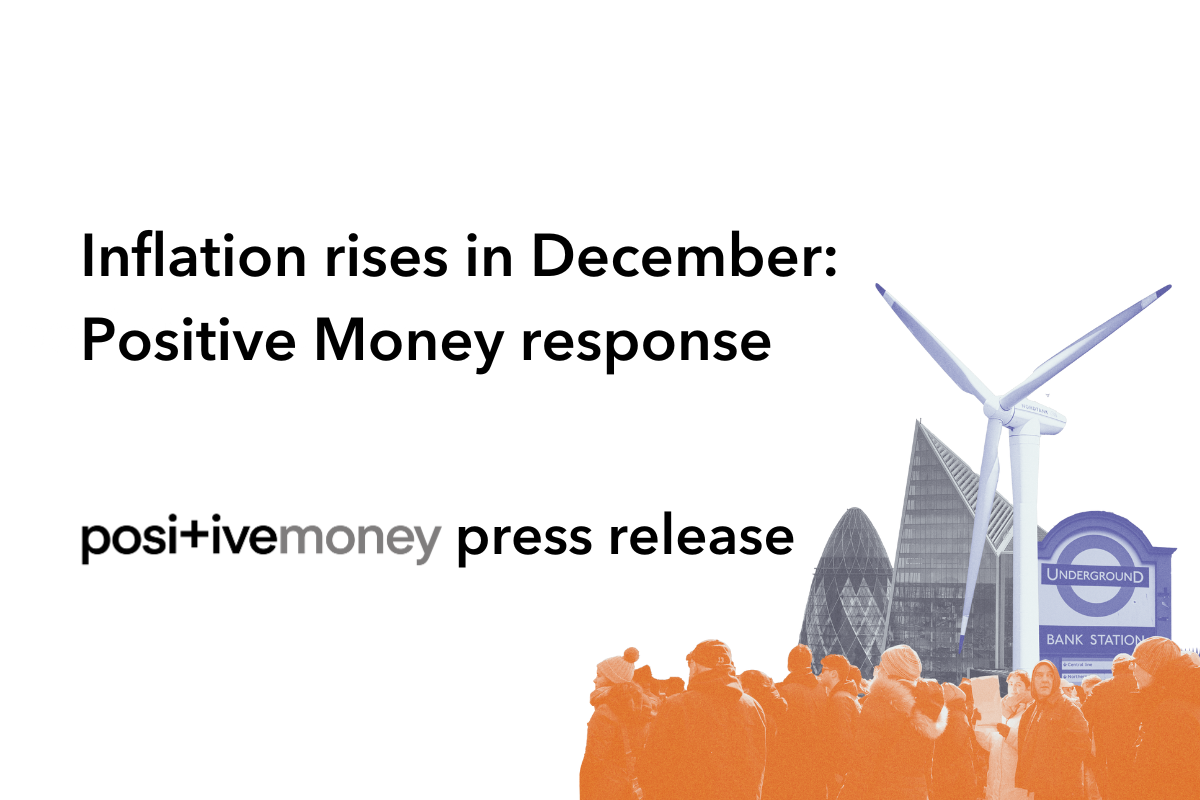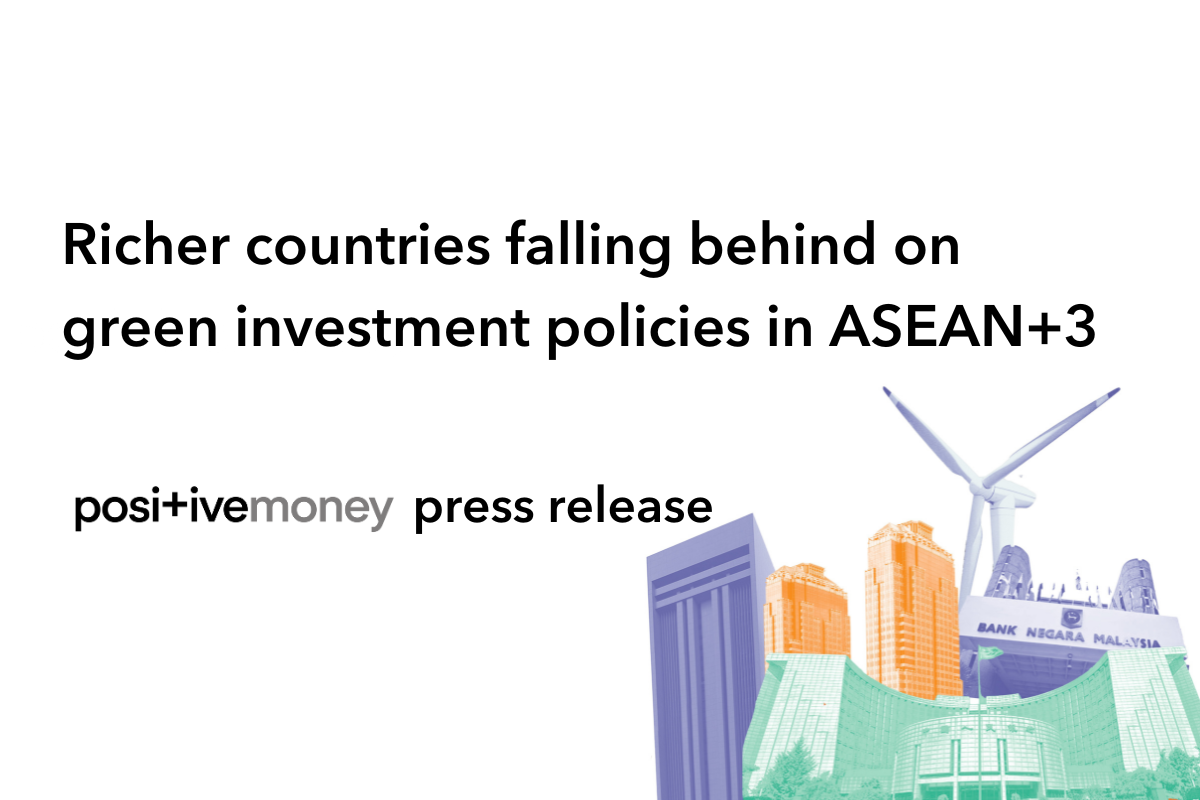
Monetary policy and inequalityUK
21 January 2026
New ranking finds some larger emitters being outperformed by countries with less resource and responsibility for climate change
10 September 2025 - The central banks and financial regulators of the thirteen countries in the ASEAN+3 bloc are making dramatically different levels of progress towards greening their financial systems, according to a new report from think tank Positive Money.
In the first-of-its-kind ranking, the East and Southeast Asia Green Central Banking Scorecard compares the progress of 13 countries’ central banks and financial supervisors in integrating environmental considerations into their policies.
A cluster of six countries at the top - led by China in first place with Malaysia, Singapore, Indonesia, The Philippines and Japan following in that order - emerge as clear leaders in the region, with overall scores in a similar range.
A separate cluster emerges at the bottom, where five countries with lower GDP and clearly at the start of their green central banking journey - Vietnam, Cambodia, Lao PDR, Brunei, and Myanmar - receive scores in a distinctly lower range. The report authors stress that this disparity in scores can largely be attributed to lesser capacity and resources amongst the lower scoring countries, shaped by enduring legacies of colonialism and the unequal international monetary and financial system.
Nestled between these two clusters are Thailand and the Republic of Korea, in 7th and 8th place, respectively.
But the report authors argue that 6th and 8th place are underwhelming positions for Japan and the Republic of Korea to find themselves in, given they are being outperformed by several countries with comparatively lower capacities and historical contributions to climate change.
Most countries perform better on financial regulation policy than monetary policy, however none have adopted any policies that Positive Money considers ‘high impact’ measures: policies that actively divert finance away from the most ecologically damaging economic activities (e.g. fossil fuel production), across assets and sectors.
A common factor linking several of the highest-scoring central banks was strong coordination with their respective national governments, which the report claims is crucial for maximising the success of green central banking policies in contributing towards the wider green transition.
Joe Herbert, Senior Researcher at Positive Money and lead author of the report, said:
“Countries in the ASEAN+3 are being heavily impacted by the worst effects of climate breakdown, but many remain structurally locked into fossil fuel extraction, partly because of the need for high-value exports within the uneven global financial system.
“Crucial to changing this is large-scale green investment, and central banks have a key role to play in guiding finance away from the expansion of fossil fuel projects and towards the scaling up of clean energy.
“Countries with greater economic power and larger historical contributions to environmental degradation should lead the charge here, and support the most vulnerable countries to develop their own green central banking policies, both within the region and beyond.”
Notes:
The report can be accessed in full here: https://positivemoney.org/uk-global/publications/east-southeast-asia-green-central-banking-scorecard/
McKinsey estimates that $3.1 trillion will need to be spent annually on climate-related infrastructure in Asia to achieve net zero by 2050: https://www.mckinsey.com/featured-insights/future-of-asia/shapers-of-sustainability
Flash floods caused havoc across swaths of Asia in August: https://www.ft.com/content/789bc70f-7d4a-4caf-a86d-8819d9ed615b
Positive Money has been ranking the central banks of the G20 on their environmental policies since 2021. The latest edition of that scorecard can be found here: https://positivemoney.org/uk-eu-global/publications/green-central-banking-scorecard-2024/
